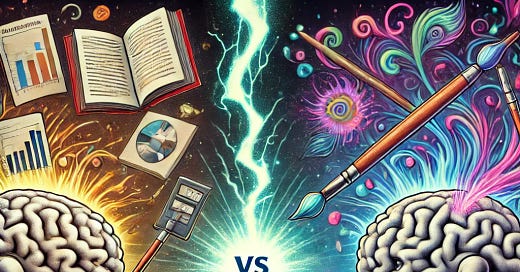I choose to believe that I’ll win the lottery.
I somewhat recently had a conversation where the nature of belief came up. A friend said something to the effect of choosing to believe something to be true. It wasn’t about winning the lottery, but it might as well have been.
That phrase—choose to believe—caught me off guard. I’ve heard it my whole life, but it’s only with a much deeper appreciation for etymology that I’ve begun questioning some of the most common phrases right in front of my nose. Can you really choose to believe something?
Instantly, I thought this was a silly thing to say. Belief is ultimately decided based on weighing all the probabilities, then deciding which outcome is most likely. You can no more choose to believe in something than you can choose to be suddenly fluent in Portuguese.
Then I remembered the drunken octopus phenomenon, and how you can get to the bottom of complex questions like this in seconds, not days or weeks or months. I recalled how much I’ve been learning about how thoughts form, and I realized this was far from a silly place to spend some time.
First, there’s the definition of belief getting in everyone’s way. People might believe something because they’ve weighed all the evidence carefully, as I described, but they might mean something completely different. When you get down to it, choosing to believe is a type of decision.
Learning about how we humans make decisions has suddenly made enormous leaps forward by way of observing generative artificial intelligence. By observing crude replications of the human process of the neuronal tug-of-war that takes place all the time, we’re learning secrets about how we think.
Seeing how generative AI screws up something we seem to understand easily is just as eye-opening.
over at Why Try AI has consistently run an AI fail of the week as a part of his Sunday Rundown newsletter, and there’s no better way to showcase how complex our thought patterns really are than by having an AI try to do something we take for granted.When we burn our hand on a hot stove, we quickly learn not to do that again. Why? Do we choose to believe the stove is hot when it’s turned on, or does the belief just happen? We might call this aspect of choosing “seeing is believing”, and it’s along the same lines of that evidence-based decision-making process I was describing earlier.
On the opposite end of this spectrum is a group you might not expect to be here: athletic competitors. After all, it’s not like you can choose to believe the ball went into the hoop just now. What you need is a million of those little hot stove data points, where you can gradually learn what works and what doesn’t by observing and tweaking things over and over again.
The best athletes are ruthless with reality. Jiu jitsu competitors I’ve known have obsessed over studying video footage of themselves and their opponents, and were often incredibly self-critical, even to the point of degrading mental health. Suffice it to say, taking in things as they are and not how you want them to be is a hallmark of great athletes.
Even still, some of these very same athletes are superstitious. They might have lucky socks they wear, or try to do a specific routine every time before they compete. Some part of them believes that their success is tied to some bizarre personal act.
Deep down, do these brutally analytical scientists (athletes) really believe that blowing on a Troll’s hair is going to change whether their team will win or not? Does anyone really think whistling past the graveyard is what prevents evil spirits from coming out of the ground and taking your soul?
Here’s where language really comes into play. The type of belief I was referring to earlier, where you simply decide you’re going to believe a thing? That’s called volitional belief, and if you’ll allow me to oversimplify just a bit, I might instead call it wishful thinking.
If you’re aware that believing a negative outcome might make it come true, you might want to will yourself to believe in a positive outcome. This particular situation is tricky, since your frame of mind really does determine the outcome. Choosing to believe in a positive outcome could actually tip the scales into positive territory.
Leaving that very specific example aside, though, can you choose to believe in something in the sense of simply pressing some internal button? Certainly not. That neuronal tug-of-war that happens whenever you make a decision, where millions of parameters are considered in a split second, each having their own little battle play out across dendrites and axons.
That’s the same tug-of-war that’s happening any time you generate an image or ask a question of an LLM. This incredibly complex process happens beneath the surface of our conscious thought, so we sometimes take it for granted, but choosing to believe might not be all it’s cracked up to be.
Personally, I view choosing to believe as a slippery slope into dangerous territory. Knowing what’s real and what isn’t is the most important thing there could possibly be, and it’s exactly how we humans have made things better in the world for one another over the millennia.






"Choose to believe," I've found is more, "Choose to suspend disbelief." It isn't the proof for belief but the default to accept a belief and, typically, stop looking for disconfirmatory information.
I choose to believe this comment of mine is going to be published on the cover of Time magazine as comment of the year!
Thanks for the shout-out!